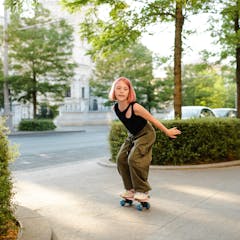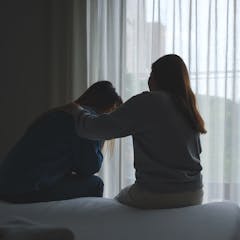
Articles on Health
Displaying 1141 - 1160 of 2517 articles

One thing we can do to reduce this transport inequity is make it easier for First Nations people to get their driver’s licence. This also brings individuals and communities many other benefits.

The latest TikTok wellness trend could be good for you but might prove difficult to swallow.

A new Grattan Institute report shows how the government can create innovative alternatives to group homes that cost the same or less money.

With warm weather in Australia, should we be worried too?

Transgender children and adolescents use puberty blockers to help prevent the masculinising or feminising physical changes that occur during puberty.

Many people on TikTok are touting chocolate milk as a post-workout recovery drink. It turns out there is some evidence it offers benefits comparable to sports drinks.

In a new study, we looked at how the presence of diagnostic labels – such as ‘major depressive disorder’ or ‘PTSD’ – affected the way people perceived others experiencing mental distress.

Silent prayer may seem benign, even peaceful, but when anti-abortion protestors pray silently outside abortion clinics, it can be experienced as intimidation and coercion by service users.

From cold sores to oral cancer – your mouth can say a lot about the state of your health

We don’t yet know the health effects of microplastics in the brain. But until we find out more, it’s best to limit our exposure to plastics where we can.

The weight-loss drug Wegovy is now in Australia. Here’s what the science says about the potential benefits and risks of taking it.

Taking your supplement at the right time of day and with certain foods can boost how your body absorbs the iron.

RSV is most common in kids under 5. Research suggests it could cause asthma, but we need to know more.

The popularity of the Mediterranean diet reveals a society in crisis, because it is the opposite of our way of life.

Type 1.5 diabetes has features of both type 1 and type 2 diabetes.

Whether ‘adaptive’ equipment is expensive or affordable, expert guidance is essential for many people with disabilities.

Public health resources often recommend brown rice instead of white as a ‘healthy swap’. But what if you prefer white rice?

If you’re aged 25 to 74, you might be due for a cervical cancer screening test. Here’s what to expect – and what’s changed in recent years.

Do you have to say a fond farewell to your favourite ham sarnie or bacon butty? An expert sets the record straight

For the majority of the population, the risk appears to be very low. And for the higher-risk groups, we should be able to manage any outbreaks.

